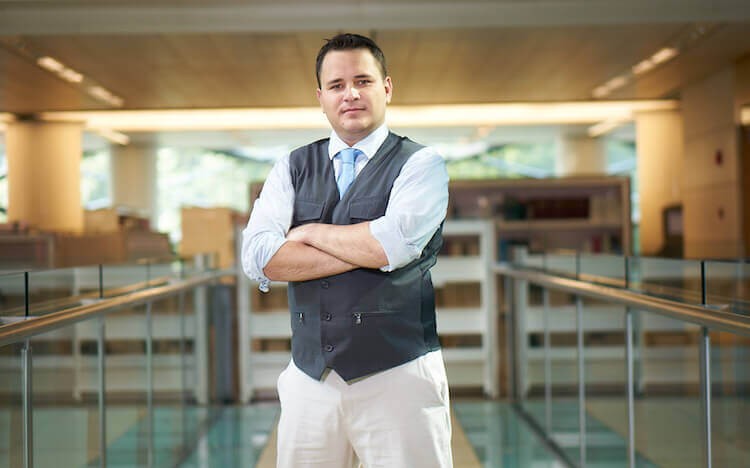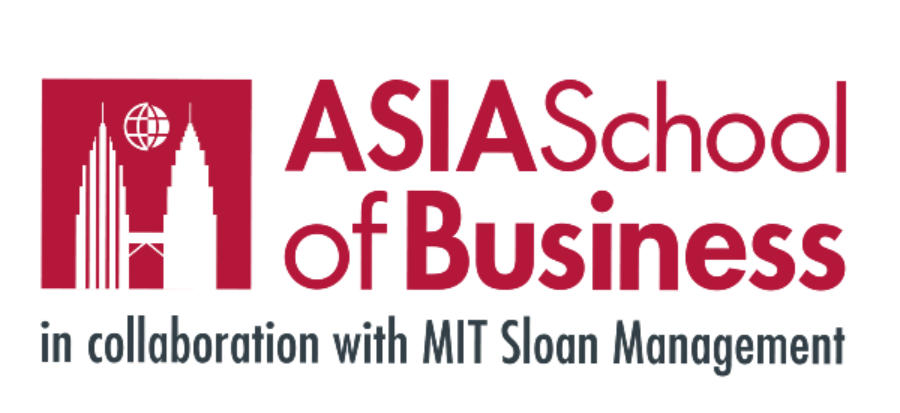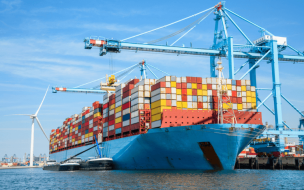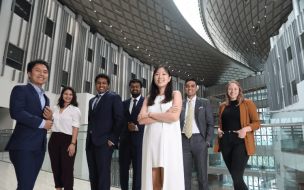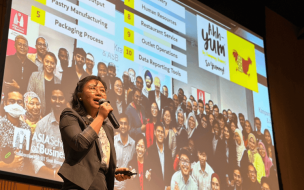While Uber’s venture into China in 2013 flopped, losing around $2 billion in three years; its competitor, DiDi, acquired Uber’s China operations and is now considered one of the world’s most valuable startups.
As DiDi looks to expand into new markets, as well as developing driverless car technology, it's eyeing up top-caliber business professionals to bring into the company.
But what does it take for MBAs to land a job at a tech giant like DiDi?
A renowned degree based in Asia
Career success in his home country of Brazil, with a top role at Anheuser Busch Inbev, wasn’t enough for Diego Benito, and he knew he wanted an international career.
“I always had this feeling that I should work somewhere else,” Diego remembers, “And leverage the impact I can have through working in other communities and societies.”
The MBA at Asia School of Business (ASB) in Kuala Lumpur offered exactly this—an international experience in a powerful growing economy, combined with the reputation of MIT Sloan with which the school is affiliated.
The school’s reputation attracted excitement and attention from employers like DiDi, who constantly searched for talent with experience in Asia. This reflects quite a shift, Diego notes, from previously US-centered recruitment.
“Historically there has been an exodus to the West—to places such as Silicon Valley. This is changing, with schools like ASB preparing students to work in this [Asian] environment,” Diego says.
Practical, hands-on experience
Pursuing an MBA can mean taking one-to-two years out of work to focus on education, leaving a gap in students’ resumes.
For MBA students like Diego, the Action Learning Program at Asia School of Business—five consulting projects over the course of the program—ensures that students have consistent hands-on experience throughout their MBA program.
“It’s not like you take two years off your career—you are constantly accelerating and widening your career horizons,” Diego stresses.
Diego’s projects exposed him to the exciting Southeast Asia tech market, which is growing to meet the demands of an increasingly online population.
Placements at Traveloka, a travel-booking startup based in Indonesia, and Zarla, an e-commerce platform in Myanmar, found Diego working on-site to create real solutions to the problems that these organizations faced in their expansion.
Part of this experience was dealing with the daily challenges that businesses face in this evolving market, and learning how to make decisions that address these challenges systematically.
One course in system dynamics, during the four weeks that all MBA students spend at MIT Sloan, gave Diego an understanding of how to make decisions with a wider goal in mind, rather than tackling problems one-by-one. For an employer like DiDi, viewing the bigger picture in a problem-solving scenario is invaluable.
Understanding the complexities of an Asian market
The rate at which the Asian economy is growing and changing was one of the big draws for Diego to study at Asia School of Business.
“Asia has the biggest opportunities right now, [with] millions of people emerging from poverty into the middle classes. These people want to consume, they want access to things they didn’t have before,” Diego points out.
DiDi’s mass appeal comes from its multiple platforms, offering bike sharing and bus services, alongside ride hailing, all through one app.
A sophisticated understanding of the complexities of Asian economies is crucial to gaining market share. The American model, as Uber will attest to, doesn’t work.
Working and consulting with regional businesses during the Action Learning Program gave Diego a practical understanding of how problems differ from country to country. “You have to learn how to adapt and localize the product,” Diego underlines.
During Diego’s consulting project at Zarla in Myanmar, it was important to understand how the market responded to different incentives and models—for instance, adapting the company’s payment systems to accommodate a cash-only society.
Diego’s experience in both Asian and South American markets has equipped him well for his role at DiDi, where he will be working on the global leadership development program, focused on bringing the app into South America.
“I really wanted a role where I could leverage my MBA, my experience, and the added value I bring of being a foreigner in this environment,” he says.


